|
|
|
Favorite
2 favorites
270 views
|
|
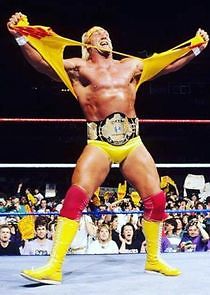
info
|
|

info
|
|
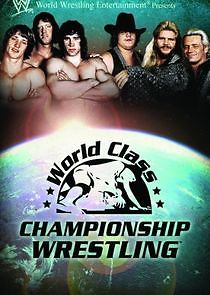
info
|
TV Show:
World Class Championship Wrestling
( 1982 )
World Class Championship Wrestling (WCCW) was a regional professional wrestling promotion headquartered in Dallas and Fort Worth, Texas. Originally owned by promoter Ed McLemore, by 1966 it was run by Southwest Sports, Inc., whose president, Jack Adkisson, was better known as wrestler Fritz Von Erich. Beginning as a territory of the National Wrestling Alliance (NWA), it went independent in 1986 in a bid to become a major national promotion, but was unsuccessful in its attempts and eventually went out of business in 1990. Rights to the pre-1988 WCCW tape library currently belong to WWE (the post-1988 rights are owned by International World Class Championship Wrestling).World Class Championship Wrestling was a member of the NWA and was originally known as Big Time Wrestling until 1982, when Adkisson decided that the name of his federation needed to be changed. Mickey Grant, who headed the production of its telecasts, suggested the name World Class, and from there, the rest was history. WCCW operated its enterprise in Dallas, Texas and held wrestling events at the Reunion Arena, and mostly at the famed Sportatorium, located just south of Downtown Dallas, which was also a well-known boxing and wrestling arena as well as the one-time home to the famous Big D Jamboree.World Class Championship Wrestling experienced tremendous success from 1981-1985, shattering attendance records and achieving global exposure through their syndicated television program. Bookers Ken Mantell, David Von Erich, Gary Hart, Bruiser Brody and Kevin Von Erich provided fans with hard hitting action centered around the popular Von Erich brothers and a cast devious villians.Storylines during this time followed a consistent theme of friendship and betrayal, with many of the top villians being first presented as friends to the Von Erich Family, only to betray them months or even years later. Weekly wrestling shows were staged there on Tuesday nights until August 1978, then were moved to Sunday nights until the early '80s, and finally were held on Friday nights until the promotion's demise.WCCW's syndicated show was usually taped at the Sportatorium beginning in 1981, with two hour-long shows being recorded every other Friday. These telecasts were, in the beginning, seen in only a few markets and were hosted at various times by Gene Goodson, Steve Harms, and Marc Lowrance; when the show was taken over in 1982 by Continental Productions (a subsidiary of local station KXTX) and went to international syndication, well-known north Texas journalist/sportscaster Bill Mercer (a former play-by-play announcer for the Dallas Cowboys, Texas Rangers and Chicago White Sox along with other Texas-based teams) became the ringside announcer at the Sportatorium. For a few months he co-hosted with Jay Saldi, and by 1983, hosted the hour-long program alone, with Lowrance filling in for Mercer from time to time.
|
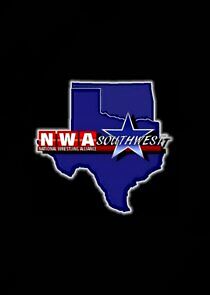
info
|
TV Show:
NWA Southwest Wrestling
( 1999 )
National Wrestling Alliance Southwest shortened to NWA Southwest Wrestling (also known as Southwest Championship Wrestling) was a Wrestling Federation that was formed in 1998 in Dallas, Texas by Ken Taylor. They had a 1 year only syndicated television run in 1999 and the Federation was disbanded in 2011.
|
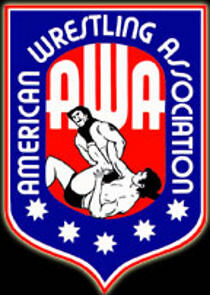
info
|
|
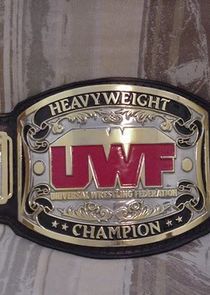
info
|
TV Show:
Universal Wrestling Federation
The Universal Wrestling Federation was owner Bill Watts' attempt at taking his Mid-South Wrestling promotion to a national level in 1986. The attempt failed and in 1987, Watts sold the promotion to Jim Crockett Promotions and it became part of what would later be known as World Championship Wrestling. The promotion had started out as an NWA Territory known as NWA Tri-State founded by Leroy McGuirk in the 1950s. Tri-State promoted in Oklahoma, Arkansas, Louisiana and Mississippi, the same area that Watts's Mid-South wrestling ran in before attempting to go national. In 1990, Herb Abrams started an unrelated wrestling promotion with the same name.In March 1986, MSW went national and was relaunched as the Universal Wrestling Federation so it was not stigmatized as a southern group. From that point, many newcomers (mostly from World Class Championship Wrestling, WCCW) joined the federation, as did former WCCW co-promoter Ken Mantell. However, despite the federation's success, it could not compete against Jim Crockett Promotions and the WWF. In addition, the WWF also reached the pinnacle of its success through WrestleMania III. Watts was also harmed when the oil-based Oklahoma economy went into a severe recession in the fall of 1986, affecting all businesses and cutting down on fans able to pay to see the shows. Watts would end up selling the UWF to Crockett on April 9, 1987, and many of the federation's top names went on either to the NWA, WWF, or WCCW. Unlike the other NWA promotions JCP purchased, the UWF did not immediately end; it was kept alive until December 1987. Despite promises at the time, Crockett buried the UWF, letting its various titles die out and, with the prime exceptions of Sting, the Fabulous Freebirds, Shane Douglas, Rick Steiner, and for a while Eddie Gilbert, and Steve Williams, few of its various stars made headway into Crockett's promotion.Crockett's circuit was sold to Ted Turner and eventually become World Championship Wrestling. In the early 1990s, Watts found himself as WCW president. WWE acquired most of the Mid-South/UWF archive for its WWE Libraries collection in 2012. The exception to this is Mid-South/UWF matches that were filmed for Houston Wrestling, the wrestling program produced by Houston wrestling promoter Paul Boesch for local independent station KHTV and whose archive is now owned by Boesch's estate.
|
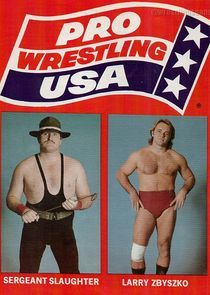
info
|
TV Show:
Pro Wrestling USA
( 1984 )
Pro Wrestling USA was a professional wrestling promotion in the United States of America in the mid-1980s. It was an attempt to unify various federations, including the American Wrestling Association (AWA), Jim Crockett Promotions and other members of the National Wrestling Alliance (NWA). Jerry Lawler, Jerry Jarrett of Continental Wrestling Association, Verne Gagne of the AWA, Ole Anderson of Georgia Championship Wrestling, Jim Crockett Promotions, and other NWA promoters got together to co-promote wrestling shows nationally. This joint venture became known as Pro Wrestling USA. This loose alliance of promoters from across America was to serve as a national federation. Pro Wrestling USA shows could boast, for example, an AWA and NWA World Title match on the same card.
|
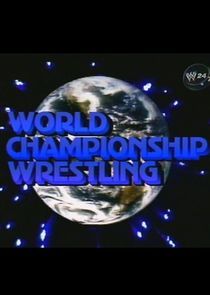
info
|
TV Show:
World Championship Wrestling
( 1984 )
This was the main wrestling program for Crockett Promotions on WTBS. For most of 1985 and 1986 the show was taped on Saturday mornings at the TBS studios on Techwood Drive in Atlanta. It traditionally aired at 6:05 PM ET, but occasionally aired at other similar timeslots.The program had it's origins back to the early 1970s when the NWA Georgia territory wrestling promotion began airing its Atlanta show on the broadcast channel WTCG channel 17. Georgia Championship Wrestling was a ratings juggernaut when WTCG became WTBS and went national as the nation's first "superstation" on cable television.In 1982, the promotion changed the name of the program to World Championship Wrestling, and it kept that name until the end of the GCW era, then through the WWF era, and on into the Crockett era on TBS.
|
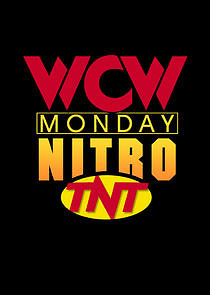
info
|
TV Show:
WCW Monday Nitro
( 1995 )
WCW Monday Nitro was a weekly professional wrestling telecast produced by World Championship Wrestling, created by Ted Turner and Eric Bischoff. The show aired Monday nights on TNT, going head-to-head with the World Wrestling Federation's (WWF) Monday Night Raw from September 4, 1995 to March 26, 2001. Production ceased shortly after WCW was purchased by the WWF. The debut of Nitro began the Monday Night Wars, a ratings battle between the WWF and WCW that lasted for almost six years and saw each company resort to cutthroat tactics to try to compete with the competition. In mid-1996, Nitro began to draw better ratings than Raw based on the strength of the nWo storyline, a rebellious wrestling stable that wanted to take over WCW. Nitro continued to beat Raw for 84 consecutive weeks, forcing WWE owner Vince McMahon to change the way he did business. As the nWo storyline grew stagnant, fan interest in the storyline waned, and Raw began to edge out Nitro in the ratings.The turning point for the organizations came during mid April 1998 after Steve Austin won his first WWF title. From that week forward, Raw beat Nitro in the ratings by a significant amount, and WCW was never able to regain the success it once had. Besides broadcasting from various arenas and locations across the country (such as the Mall of America in suburban Minneapolis, Minnesota, from which the very first episode of Nitro was broadcast), Nitro also did special broadcasts from the Disney-MGM Studios in Orlando in 1996, and did annual Spring Break-Out episodes from Panama City Beach, Florida starting in March 1997. The rights to WCW Monday Nitro now belong to WWE.
|
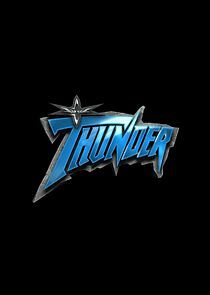
info
|
TV Show:
WCW Thunder
( 1998 )
WCW Thunder was a professional wrestling show.
|
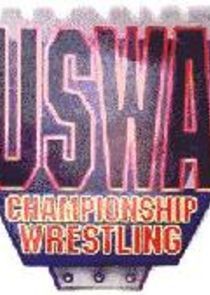
info
|
TV Show:
USWA Championship Wrestling
USWA Championship Wrestling (United States Wrestling Association) was a weekly TV show that featured some of the wrestling superstars at the very begging of their careers such as Dwayne "The Rock" Johnson who at that time was known as Flex Kavana. This promotion was active from 1986 to 1996 and Johnson appeared twice on their TV shows in their final year of existence before he changed his character name and went to the WWE, then known as the WWWF and then the WWF. He won 2 tag-team championships in the USWA both with his then partner Bart Sawyer.
|
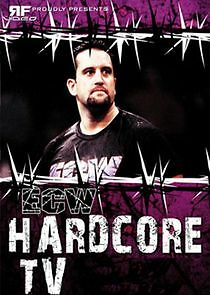
info
|
TV Show:
ECW Hardcore TV
( 1993 )
ECW Hardcore TV was a professional wrestling television program of Philadelphia-based promotion Extreme Championship Wrestling (ECW) composed of footage from live shows and recorded interviews. It ran in syndication from 1993 until 2000.
|
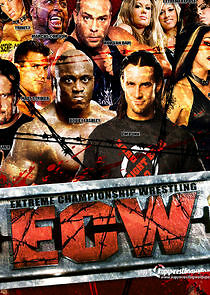
info
|
TV Show:
Extreme Championship Wrestling
( 2006 )
ECW was a professional wrestling television program produced by WWE. The show's name also referred to the ECW brand, in which WWE employees were assigned to work and perform, complementary to WWE's other brands, Raw and SmackDown. It debuted on June 13, 2006, on Sci Fi in the United States and ran for close to four years until it aired its final episode on February 16, 2010, on the rebranded Syfy. It was replaced the following week with WWE NXT.
|

info
|
|
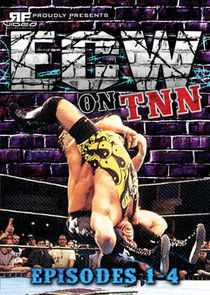
info
|
TV Show:
ECW on TNN
( 1999 )
ECW on TNN, also known as ECW Wrestling, was an American professional wrestling television program that aired on The Nashville Network (TNN, now Spike). Created by Paul Heyman, the owner of Extreme Championship Wrestling (ECW), it presented original ECW matches on Friday nights and was the only national television program in ECW's history. It debuted on August 27, 1999 - five years to the date that Shane Douglas threw down the NWA World Heavyweight Championship and rechristened ECW (then known as Eastern Championship Wrestling) as Extreme Championship Wrestling. The final episode aired on October 6, 2000.
|
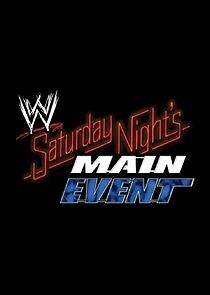
info
|
TV Show:
WWE Saturday Night's Main Event
( 1985 )
WWE Saturday Night's Main Event returned to NBC in March 2006 after a 13-year hiatus. In the mid-1980s through early 1990s, WWE fans would scour the television listings each month - making sure they didn't miss the highly anticipated special that replaced network staple Saturday Night Live on occasion. When Jon Lovitz, Dennis Miller and Dana Carvey weren't performing comedy sketches, WWE Superstars were squaring off in matches that often took on a pay-per-view feel. The show's original theme song was "Obsession" by the band Animotion, but by the time the first run of the series ended in 1992, the music was changed to a generic theme.
|
|


deadwalker : I think the writing su--s!